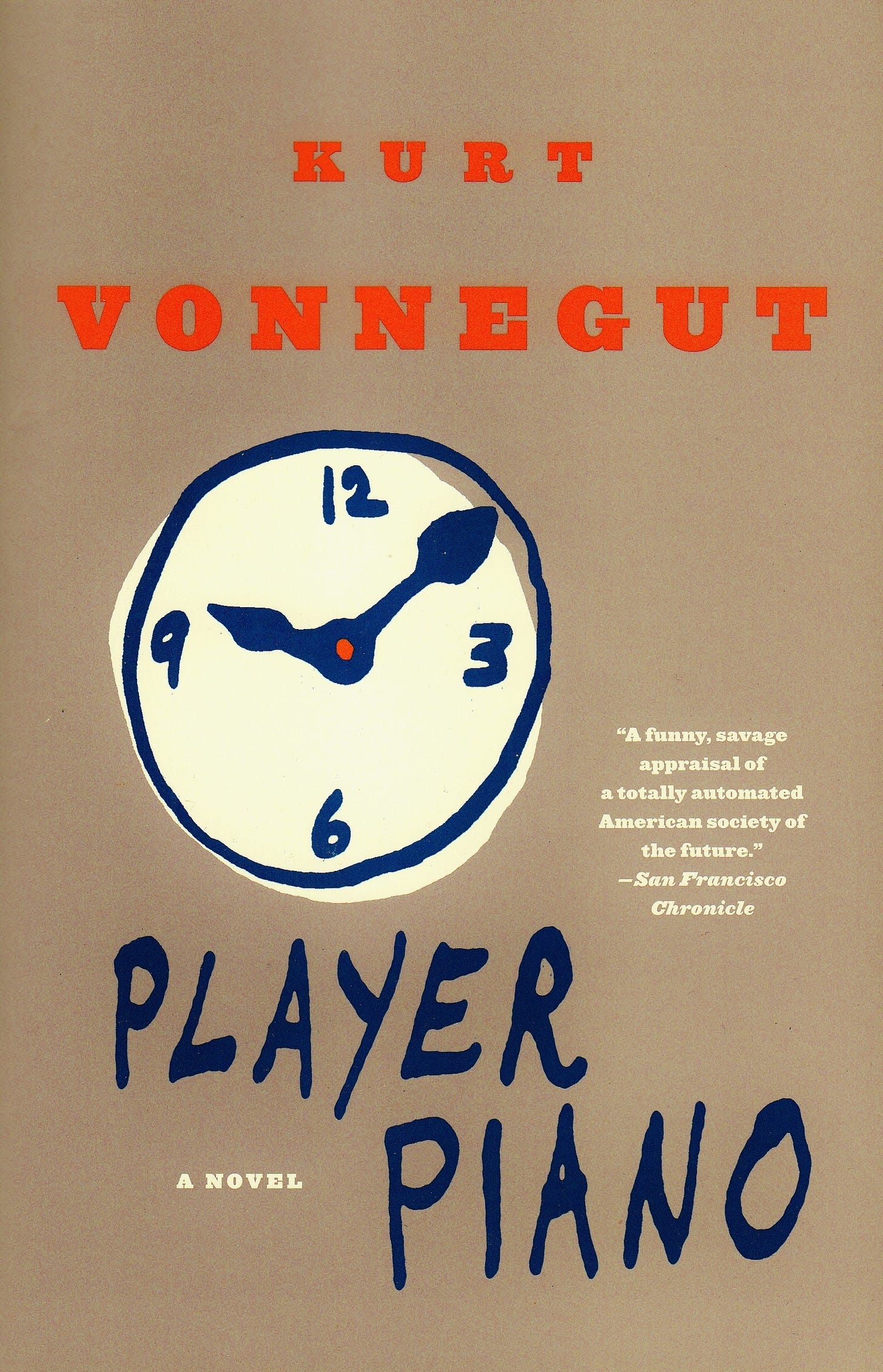Book Review - Player Piano by Kurt Vonnegut
Vonnegut's first novel isn't his best but it's still fun.
Player Piano feels very relevant to current trends. Dr Paul Proteus is a well-regarded engineer in Ilium, an automated society suffering a class divide between the northside where managers reap the rewards and the Homestead where 'Reeks and Wrecks' (Reconstruction and Reclamation Corps) ply what trades they still can. Despite his nepotistic security, Paul becomes increasingly aware of this disparity and rebels where he can. Then, when an opportunity rises to join the 'Ghost Shirt' movement, Paul is left with little choice but to take it.
This novel is full of the witty and sentimental observations that make Vonnegut iconic. The satire of American bureaucracy from glad-handing to skimming the ranks, is very sharp. The arguments made about mechanisation and loss of human ingenuity are well-observed. Even the astute description of US politics bears repeating these days.
My issues with Player Piano lie with the plot. While the world-building is great, it takes far too long to set up before momentum kicks in. Paul is a very passive protagonist and his inability to commit to either side of Ilium's struggle soon becomes tedious. Meanwhile the subplot of Dr Ewing Halyard showing the Shah of Bratpuhr and his translator Khashdrahr Miasma around the city seemed a bit reductive and outdated in its racial caricature. Mind you, I did enjoy the cheeky critique of Western culture it offered.
I suppose this book's primary failing is that it's a first novel before the author perfected his style. Nevertheless it's good to have finally experienced Vonnegut's origins and to find a story that could easily be adapted to modern times. I recommend Player Piano to Vonnegut completionists and anyone who fears society is giving too much responsibility to machines.




